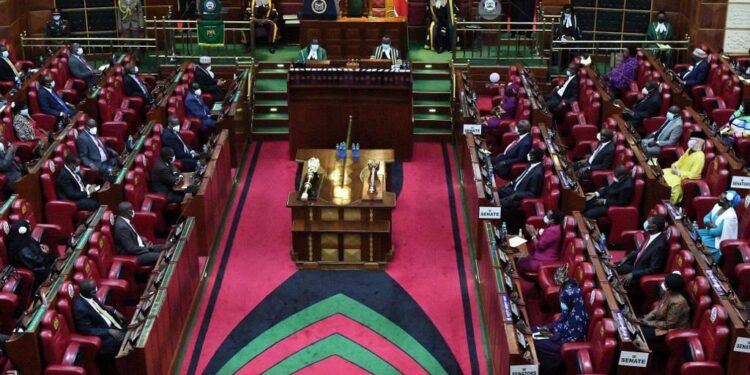When shoppers walked into supermarkets in the month of May, they did not expect to buy foodstuffs like sugar at Kshs 400+ per kilo. Prior to this increase, sugar was retailing at about Kshs 250 per kilo. The increase in sugar prices and other foodstuff is an indication of the tough economic times that many Kenyans are facing – making it hard for them to survive.
It does not help that there is a raging debate currently in Kenya about the Finance Bill 2023 that was tabled before the national assembly on Thursday, 04 May 2023. This bill proposes radical changes that would amend the Income Tax Act, Value Added Tax Act, Excise Duty Act, and other tax laws in Kenya.
To provide context on what the budget would look like, consider the following:
The government has set a budget of KES 3.6 trillion to meet the demands of its development priorities. The government intends to raise KES 2.9 trillion through domestic revenues. This would mean an estimated deficit of KES 768.2 billion. If you adjust for grants of KES 48.1 billion, then the government is looking at a deficit of around KES 720.1 billion. The financing gap is expected to be plugged through net external financing of KES 198.6 billion and net domestic financing of KES 521.5 billion.
President William Ruto’s government is looking to raise revenue of KES 289.3 billion and stimulate the country’s economic growth by an estimated 6.1%, through among others the following taxes:
- Introduction of a new 35% tax rate for income above KES 500,000per month
- Taxation of content creation and trade in digital assets such as cryptocurrency.
- Introduction of a 3% deduction from employees towards the affordable housing program. Employers are expected to match the employee contributions.
When you combine these taxes with the proposed changes in NHIF and the recent changes in national pension contributions, the impact on employees will be severe especially at a time when many are grappling with the high cost of living.
The bill has been met with mixed reactions from businesses and individuals. The common mwananchi – Wanjiku – is particularly upset as they feel that this bill does not favor them. They feel that this Finance Bill 2023 will lead to increased costs, reduced disposable income and at a macro level – slower economic growth.
Also Read: Hidden Challenges: Human Rights Issues in Islamic Inheritance Laws for Women and Children in Kenya
The good and bad
In my opinion, here are some of the pros and cons of increased taxation on ordinary Kenyans and SMEs in Kenya:
The key benefit to ordinary Kenyans is that when governments increase taxes, the general aim is to increase revenue for the government. In an ideal situation, these increased revenues could be used to fund the delivery of public goods and services, such as education, healthcare, and infrastructure.
The bigger challenge for Kenya is the public debt burden. Kenya’s public debt burden has been rising steadily in recent years, reaching 64.2% of GDP in 2022. This is higher than the East African Community (EAC) average of 55.5% and the Sub-Saharan Africa (SSA) average of 53.2%. The high debt burden is a cause for concern, as it could lead to a debt crisis if not addressed.
While the government passed a law that limits the amount of debt the government can borrow, the increased tax burden in the Finance Bill 2023, together with austerity measures meant to improve the efficiency of its spending are meant to increase revenue for the government and allow the government to pay its public debt.
In 2022, the government passed a law that limits the amount of debt that the government can borrow. The government has also announced plans to increase tax collection and to improve the efficiency of its spending.
In addition, businesses such as SMEs may increase investments as a result of increased taxation. This would be driven by the need for SMEs to invest now in order to avoid paying higher taxes in the future.
There is a downside to increased taxation, especially on the common mwananchi. Increased taxation can lead to reduced disposable income for ordinary Kenyans and SMEs, as they will have less money to spend after taxes. It can also lead to increased informality, as businesses may choose to operate outside of the formal economy in order to avoid paying taxes. It may also lead to reduced investment, as businesses may be less likely to invest if they believe that the government will raise taxes in the future.
It is important to note that the impact of increased taxation will vary depending on the specific circumstances. For example, if the government uses the increased revenue to fund productive investments, such as infrastructure, then the impact on economic growth may be positive. However, if the government uses the increased revenue to fund unproductive spending, such as corruption, then the impact on economic growth may be negative.






































































